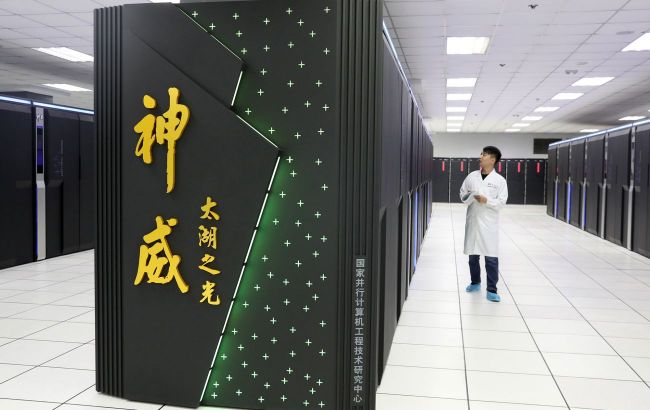China building giant AI supercomputer in space
 China is creating a space-based network of thousands of AI satellites (photo: Getty Images)
China is creating a space-based network of thousands of AI satellites (photo: Getty Images)
China has launched the first 12 of what will eventually be 2,800 satellites in a space-based supercomputing network. These devices, developed by ADA Space and its partners, are designed to process data independently, without relying on ground stations, reports Newsweek.
How China's space supercomputer changes the game
Outer space is becoming an increasingly important competition arena for China and the United States. Deploying a computing network in orbit marks a major leap beyond the traditional satellite roles of observation and communication.
Until now, satellites have relied on ground infrastructure to process data. In contrast, this new Chinese satellite constellation can operate autonomously, independent of Earth-based systems.
This eliminates the need for expensive cooling systems typical of ground-based data centers and reduces vulnerability during potential conflicts, offering clear military advantages. The new network AI capabilities underscore the intensifying race in artificial intelligence between China and the US.
How the launch happened and what China aims to achieve
The China Aerospace Science and Technology Corporation (CASC) announced that the 12 satellites were placed into orbit from the Jiuquan launch center in northern China on May 14, using a Long March 2D rocket.
"It successfully sent the space computing satellite constellation into the predetermined orbit. The launch mission was a complete success," the official statement reads.
According to "Science and Technology Daily", the official newspaper of China's Ministry of Science and Technology, the plan is to create a network of 2,800 satellites. These will be connected via laser communication and function as a single integrated computing system.
For comparison, Elon Musk's Starlink project by SpaceX — currently the largest satellite network in the world — had over 6,750 satellites in orbit as of late February and continues to expand rapidly. In the future, the number of Starlink satellites may exceed 30,000.
This context has intensified scrutiny of the growing space rivalry between the US and China. Recently, a US military satellite was spotted near Chinese ones, and China's projects in Latin America have raised concerns in Washington, according to a senior US general.
What experts and Chinese officials are saying
The creation of the first satellite cluster will enable the construction of a futuristic computing network capable of meeting the rising demand for real-time data processing directly in space.
"It will help the country take the lead in building global space computing infrastructure, take the commanding heights of the path of the future industry, and break through the boundaries of the field of artificial intelligence from the ground to space," stated China's Ministry of Science and Technology.
"Orbital data centres can use solar power and radiate their heat to space, reducing the energy needs and carbon footprint... Today's Chinese launch is the first substantial flight test of the networking part of this concept," said Jonathan McDowell, an astronomer at Harvard University.
China is expected to accelerate research efforts to surpass the US in space technology, high-speed computing, and artificial intelligence.
You might be interested in:
- Poland said what country could "put Putin in his place."
- China prepares to defend Earth from a killer asteroid


